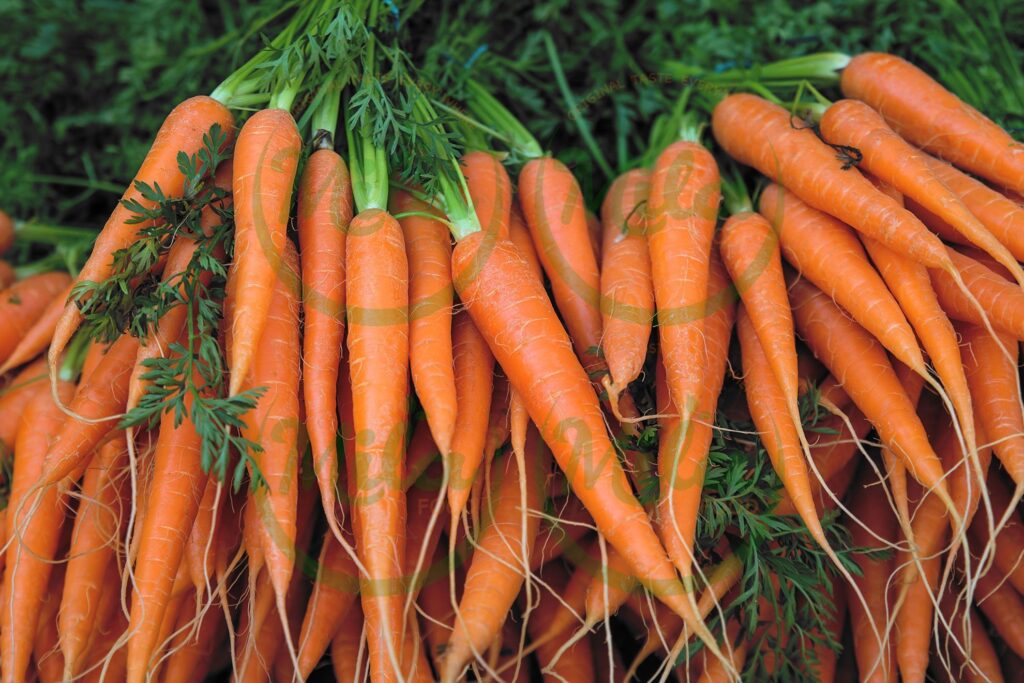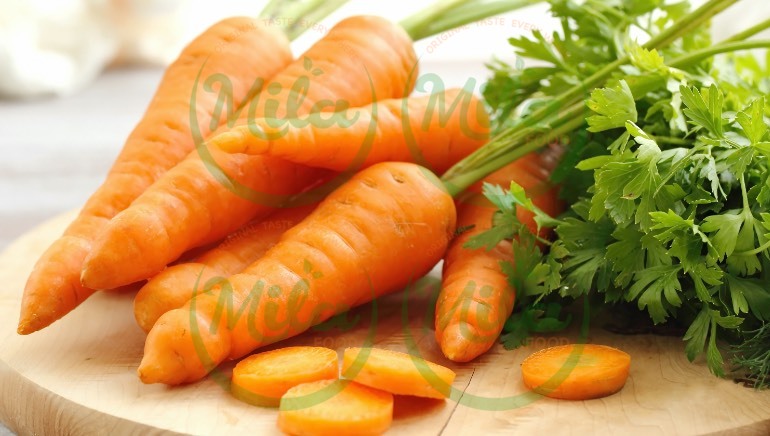


Egyptian carrots, where vibrant color and sweet flavor combine to create a culinary sensation. With their rich history and versatile nature, carrots have been a beloved vegetable in Egyptian cuisine for centuries, adding both nutrition and flavor to a variety of dishes. Join us as we explore the fascinating story, culinary uses, and nutritional benefits of this esteemed root vegetable.
History and Origins: Egyptian carrots, scientifically known as Daucus carota subsp. sativus, have a long and storied history that dates back thousands of years. Originating in the Middle East, carrots have been cultivated and enjoyed in Egypt since ancient times, prized for their vibrant color and sweet taste. References to carrot cultivation and consumption can be found in ancient Egyptian texts and artwork, showcasing their importance in Egyptian culture and cuisine. Today, Egyptian carrots continue to thrive in the fertile soils of the Nile Delta, embodying a legacy of culinary excellence and cultural heritage.
Appearance and Flavor Profile: Characterized by their vibrant orange color and crisp texture, Egyptian carrots exude freshness and sweetness. Their flavor is mildly sweet and earthy, with a refreshing crunch that adds texture to dishes. Whether enjoyed raw as a crunchy snack, roasted to caramelized perfection, or incorporated into soups, stews, and salads, carrots offer a versatile canvas for culinary creativity. Their natural sweetness makes them a favorite ingredient in both savory and sweet recipes, adding depth and complexity to a wide range of dishes.
Culinary Uses and Applications: Egyptian carrots are prized for their culinary versatility, lending themselves to a variety of dishes and cooking methods. They can be enjoyed raw as a nutritious snack or added to salads for a burst of color and flavor. Carrots can also be roasted, grilled, steamed, or sautéed to bring out their natural sweetness and enhance their caramelized flavor. Additionally, carrots are a popular ingredient in soups, stews, stir-fries, and casseroles, adding both texture and nutrition to the dish. With their adaptability and vibrant color, Egyptian carrots offer endless possibilities for culinary exploration and experimentation.
Nutritional Benefits: Beyond their culinary appeal, Egyptian carrots offer a wealth of nutritional benefits. They are low in calories and fat, yet rich in essential vitamins, minerals, and antioxidants. Carrots are an excellent source of vitamin A, vitamin C, potassium, and fiber, which support immune function, vision health, and digestive health. Additionally, carrots contain beta-carotene, a powerful antioxidant that has been associated with numerous health benefits, including reduced risk of chronic diseases and improved skin health. Incorporating Egyptian carrots into your diet can help promote overall health and well-being, while satisfying your culinary cravings with their sweet and crunchy goodness.
Cultivation and Sustainability: Egyptian carrots are cultivated in the fertile soils of the Nile Delta using sustainable agricultural practices. Traditional farming methods, including crop rotation and natural pest control, help maintain soil health and biodiversity while minimizing environmental impact. Whether grown on small family farms or larger agricultural estates, Egyptian carrots reflect a commitment to sustainability and responsible stewardship of the land.

